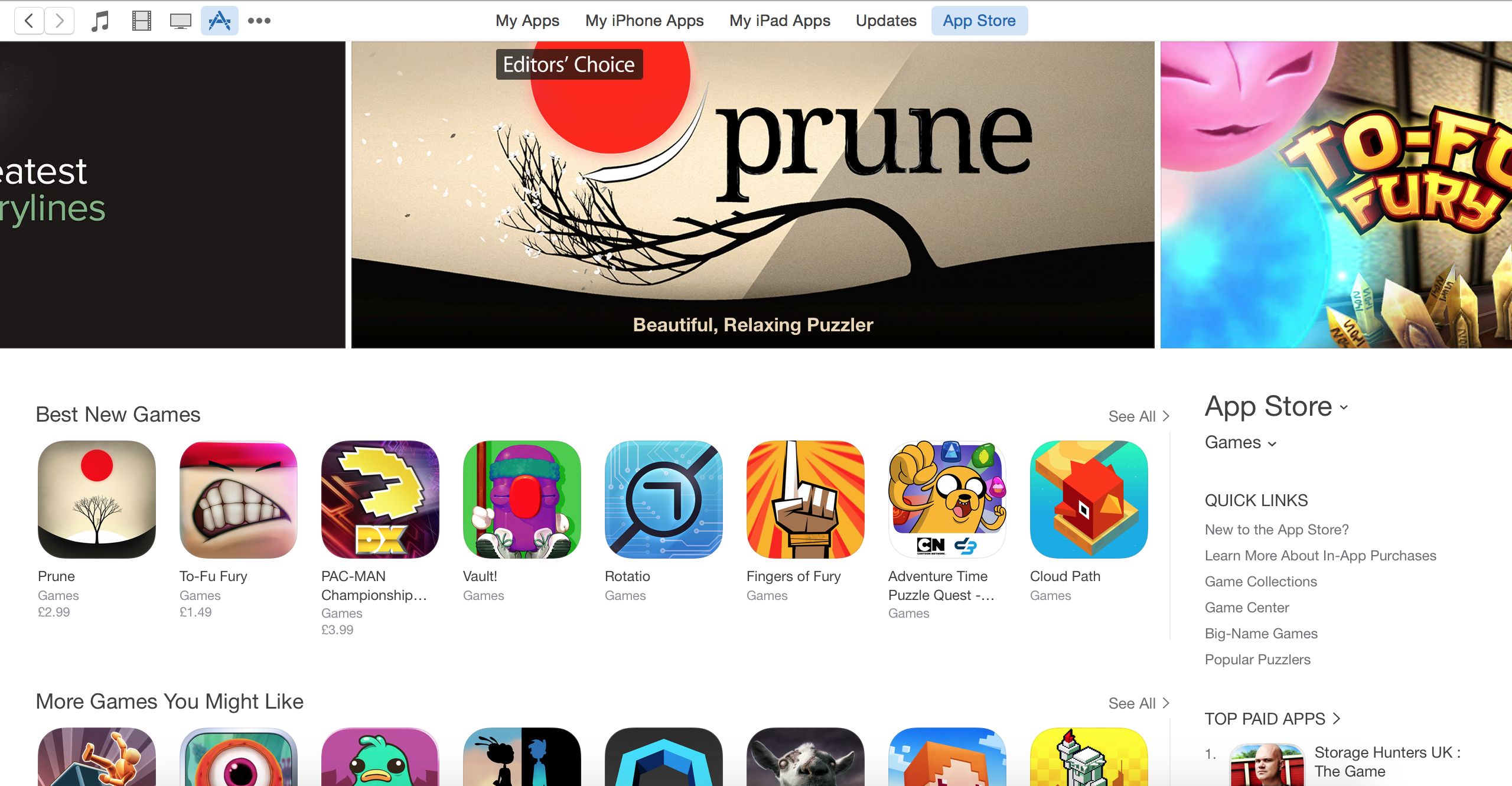When Steve Jobs wanted to show-off the raw power of the ATI graphics card inside the new Power Mac G3 in 1999, he invited id Software’s John Carmack, the man behind Quake among many others, to join him on stage and wax lyrical about what it allowed games developers to do.
In the years since then Apple has invited games developers on stage at keynotes several times, most recently to talk about Metal, a unified API that gives developers unfettered access to graphics hardware in iOS and, soon, OS X. Metal cuts rendering times by a huge margin.
It regularly features games on the front page of the App Store, and has a category for them at its annual Apple Design Awards. It has also frequently touted the iPhone, iPad, and iPod touch as the ideal mobile gaming devices.
To the casual observer, it seems that Apple must love games. However, to those who take a keener interest, Apple’s relationship with games is (at best) complicated. Even Carmack, a legend in the games developer community has told games blog Kotaku: “At the highest level of Apple, in their heart of hearts, they’re not proud of the iPhone being a game machine, they wish it was something else.”
It can get complicated
The idea that Tim Cook, Phil Schiller et al don’t value games for anything other than their potential to make money for the company isn’t confined to Carmack. Apple’s own terms and conditions make it clear that it views games as second class citizens in the iOS world. They say: “We view apps differently than books or songs, which we do not curate. If you want to criticize a religion, write a book. If you want to describe sex, write a book or a song, or create a medical app. It can get complicated, but we have decided to not allow certain kinds of content in the App Store.”
It can get complicated? No kidding. So complicated that it seems that Apple’s own staff don’t know the rules. That was made clear at the end of June, following the shooting in a church in Charleston, South Carolina after which photos emerged of gunman Dylann Roof waving a confederate flag. Apple’s immediate response was to take down games which featured the flag and prevent them being sold on the App Store, while continuing to allow other media, such as music albums from the likes of Lynyrd Skynyrd and Primal Scream, which featured the flag, to be sold. Another example saw all seven series of Dukes of Hazzard, complete with General Lee, remain on the iTunes Store.
Apple eventually explained its action in a statement: “We have removed apps from the App Store that use the Confederate flag in offensive or mean-spirited ways, which is in violation of our guidelines.” It didn’t elaborate on what it considered “offensive” or “mean-spirited.”
Regardless of what you believe about whether games which feature the confederate flag prominently have any place on the App Store, Apple’s unilateral, initially unexplained, action was lamentable. It’s difficult to imagine it treating music, video, or books in the same way.
Confusion
In another example of Apple failing to understand its own rules, the immigration-themed gamed, ‘Papers, Please’ was first banned, then re-instated last December when Apple at first decided that pixellated nudity, in parts of the game that involved a full body scanner, was in breach of its terms and conditions, and then decided it wasn’t. Confused? Games developers certainly are.
Then, of course, there’s Game Center. Oh, Game Center. How much fun you were supposed to be. Launched in 2010, Game Center made iOS games social, allowing players to connect and compete with friends. In the five years since, it’s had a couple of facelifts, bur precious little in the way of new features. If its launch was a symbol of Apple’s commitment to games in iOS, its neglect in the years since is an equally potent sign of the company’s disinterest.
Perhaps Carmack is right. Perhaps Apple, at the very top, is embarrassed by games. Perhaps it just doesn’t understand them. He also summed up how many developers feel when he said: “My relationship with Apple has been long standing, but it’s a rollercoaster ride. I’ll be invited up on stage for a keynote one month and then I’ll say something they don’t like and I can be blacklisted for six months.”
Whatever the reason, Apple has a decision to make. It needs to either back developers completely – and Metal is a good start – or be honest about how it regards games. Promoting iOS as a games platform while treating developers with, at times, contempt, does no one any good.

